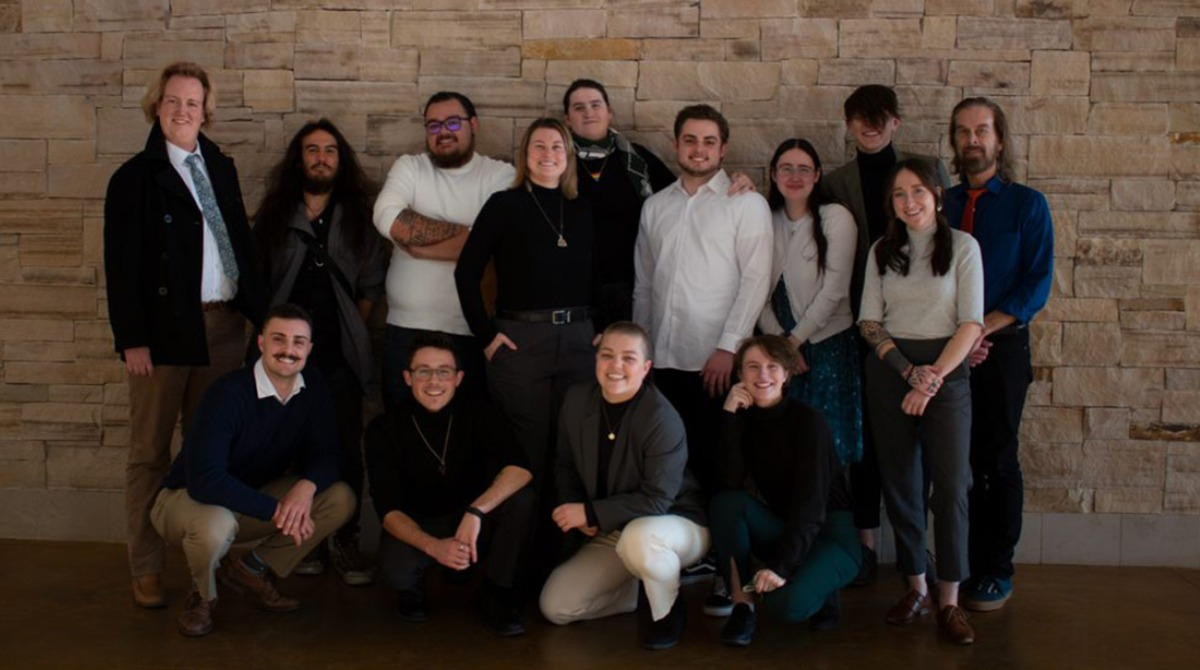Two teams of Utah Valley University (UVU) students won first and second place at the Wasatch Regional Ethics Bowl on Nov. 19. This win qualified UVU to compete at the national level for the fourth year in a row at the Association for Practical and Professional Ethics (APPE) Intercollegiate Ethics Bowl National Competition in Portland, Oregon, in March 2023.

Two teams of Utah Valley University (UVU) students won first and second place at the Wasatch Regional Ethics Bowl on Nov. 19. This win qualified UVU to compete at the national level for the fourth year in a row at the Association for Practical and Professional Ethics (APPE) Intercollegiate Ethics Bowl National Competition in Portland, Oregon, in March 2023.
Claire Montgomery, a junior studying philosophy, is a member of the UVU team that took first place at the Wasatch Regional Ethics Bowl. Detailing the opportunity to compete at nationals, she said, “While the regional competition was a good competition, the nationals will really be an opportunity for us to test what we can do.”
Every year, 12 regional competitions take place across the United States to determine the top 36 teams. The winning teams compete at the APPE Intercollegiate Ethics Bowl National Competition, held in concurrence with the annual APPE International Conference.
During the Intercollegiate Ethics Bowl, teams aim to resolve moral conflicts between parties using ethical approaches. “One of the things that is really important in the Ethics Bowl is getting at not just what the surface-level conflict between parties is, but what really are the values underlying a disagreement,” Montgomery said.
Competing in the Ethics Bowl requires extensive preparation. Before the competition, the APPE provides each team with cases that they must examine and prepare to discuss. The teams break off into groups to identify who will be impacted by the cases, where conflicts lie, and potential resolutions to those conflicts. After identifying those elements, the teams determine the best moral solutions to the cases and agree on positions they feel comfortable defending.
Montgomery described the importance of this preparation. “As a team, I believe that if we continue working and putting forth the same level of consistent effort that we did this semester in the next semester, that will be enough for us to be very competitive,” she said.
During the Ethics Bowl competition, teams formulate arguments about the cases they examined beforehand and present them to the judges and other teams. The opposing team then responds.
“An ethics bowl is very similar to a debate, but it's more about having a conversation with another team about ethical issues as we try to find potential issues to those issues that we face contemporarily,” said Rowan Hadlock, a member of the first-place team. He is a senior studying philosophy and gender studies.
The Ethics Bowl is unique, given that each team presents on a different case in each round. This creates an environment of deep consideration rather than a traditional debate. “Winning is less about directly defeating an opponent so much as trying to present your case as you see it, the best that you can,” Montgomery said.
Teams are scored based on clarity, organization, ethical analysis, deliberative thoughtfulness, commentary on the opposing team’s presentation, response to commentary, and response to judges’ questions.
Hadlock said that the Ethics Bowl provides students with not just an opportunity to discuss ethical issues but also the chance to connect with others. “The Ethics Bowl is something that can be relatable and accessible to anybody because it has a lot to do with issues that affect everyone,” Hadlock said. “Even if every case isn’t super personal to you, it is nice to see the wide span of issues that we are able to talk about and the ways we are able to use that to connect with other people.”